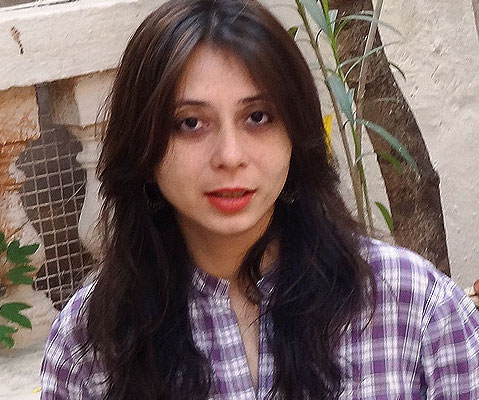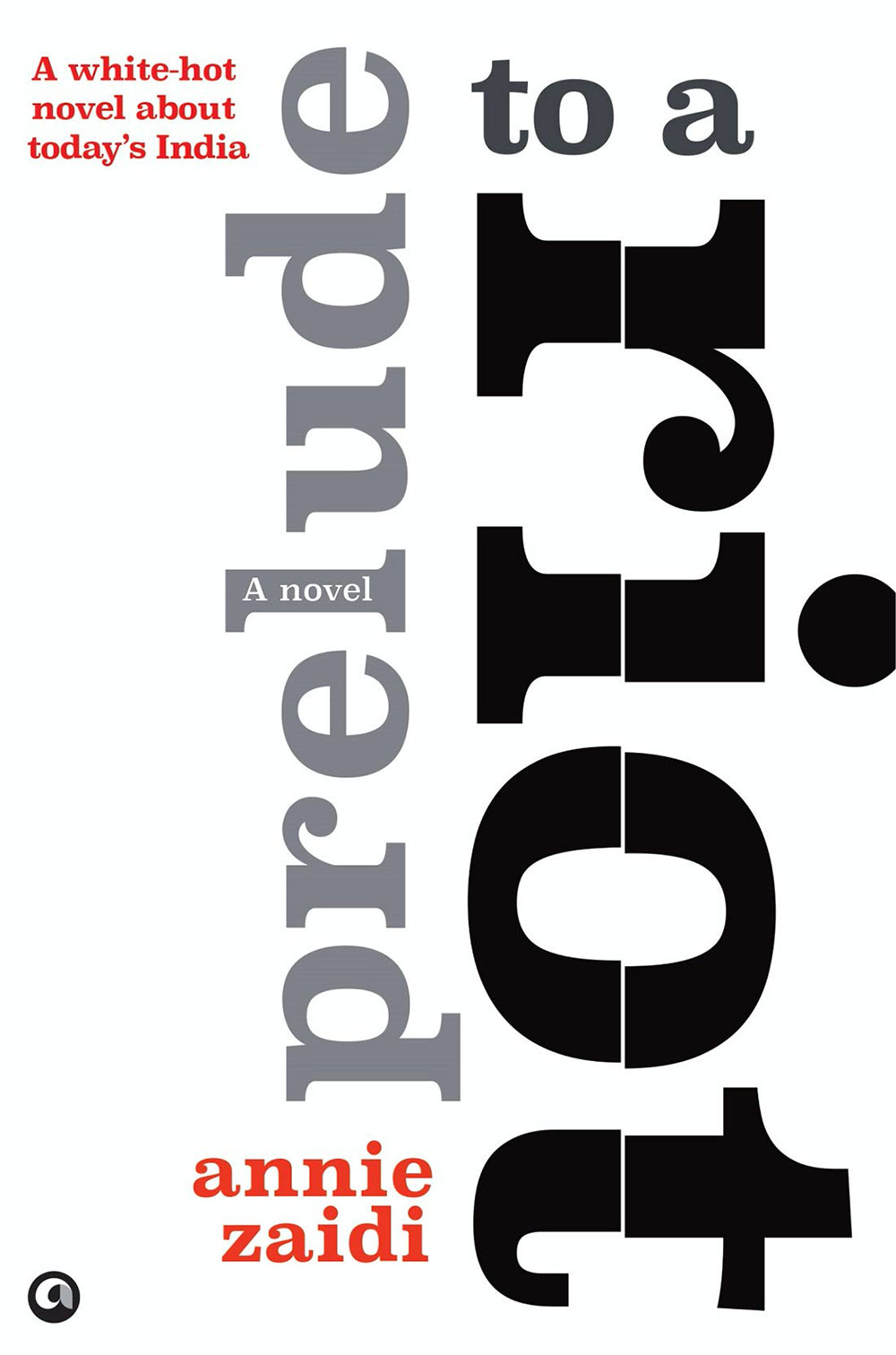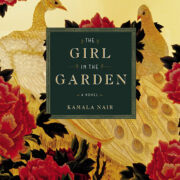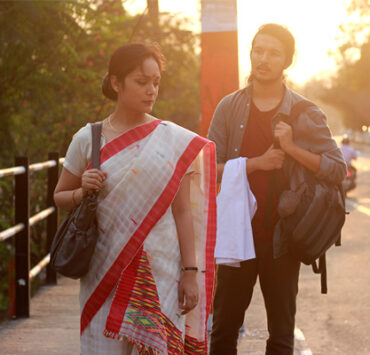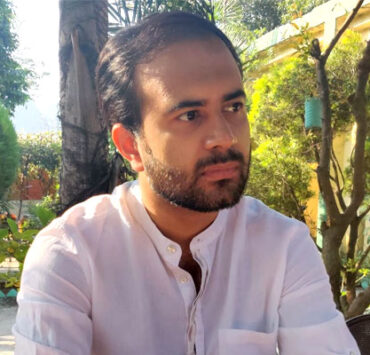Annie Zaidi’s Prelude to a Riot is a closely observed study of the underlying tensions lurking within a sleepy South Indian community.
Told from the perspective of various townspeople, including Muslim and Hindu estate-owning families, the story deftly captures the othering of one’s own community, one’s own friends. Left unchecked, envy and anger escalate and religious, class and caste distinctions heighten. The violence that once appeared unlikely becomes inevitable.
Zaidi, a poet, playwright, essayist, and novelist, spoke to us about her powerful new book. Read on for an interview with the author about the importance of history, inequalities within South Asia, and why we can never escape home.
(This interview has been lightly edited for clarity and length.)
This book feels both like a highly specific portrait of a town and also like a much broader commentary on India today. Can you tell us about its origins and how you went about writing it?
This is a completely unexpected novel—I didn’t set out to write it. I was traveling for an unrelated purpose, down south to research farm labor and farm wages. I’d heard a lot about tea plantations, coffee plantations, banana plantations. I was interested in examining why there is conflict and deep poverty in some areas and why in certain areas there isn’t such deep poverty, and how that happens.
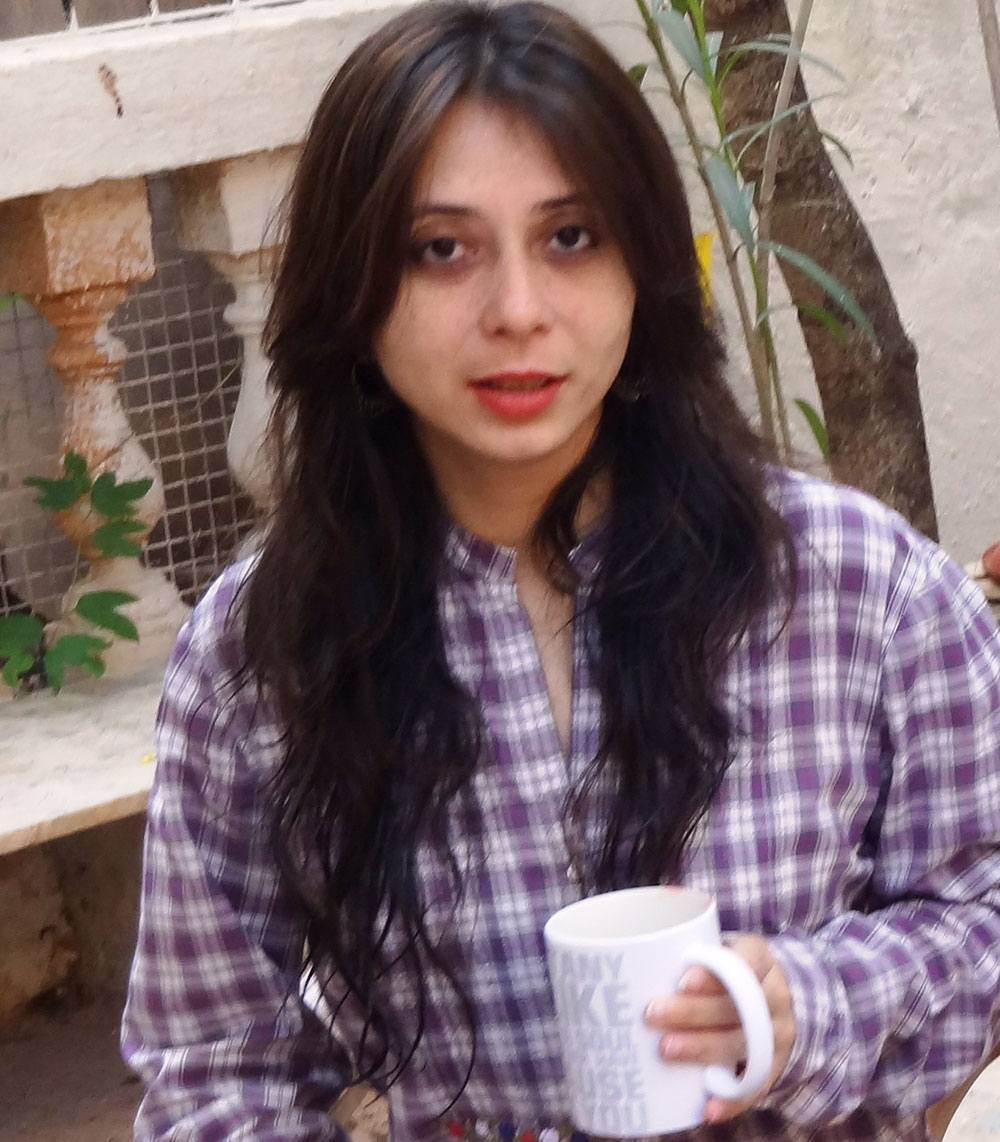
Annie Zaidi is a poet, playwright, essayist, and novelist. Photograph by Yasmin Zaidi.
So, I went with that intention and I basically wandered around talking to people who owned plantations and estates. And while I was traveling, these things just came out of people’s mouths, you know? And some of the passages in the book I’m literally quoting people verbatim. For instance, there is one sentence where the plantation owner, Appa, is saying: “Why do these people need mobile phones? Do they want to call monkeys?” or something like that. And this was something I actually heard. It came out of someone’s mouth. And I sat there and wrote it. And… there is no awareness that there is bias at play and that there is class and caste bias and this kind of competitive discourse around who has the right to do what.
I think I was so troubled by it that I never actually wrote that farm labour story. Because the other stuff became so big in my head. And also, I realised I needed to go back to actually finish that story, I needed to make two more trips to go deeper into it. And I found myself not wanting to go back. This [plantation town] was very peaceful on the surface, right? This kind of place—there is no violence, there’s no obvious… there weren’t people waving flags in your face. It’s a tourist destination, an up-and-coming place, people were investing in tourism. In the middle of all that astounding beauty, I was sitting there, kind of horrified and wanting to run away. And also very worried, because I could sense the bias getting stronger. Some instinct told me that the bias may have preexisted but that there is something making it stronger.
And I heard a lot of anti-Muslim bias also. I think the reason I heard it was because with a name like Annie they didn’t know who I was. They felt very comfortable until the end of the trip when one person finally asked me, “what are you?” I think they thought I’d say Syrian Christian or something because in the south that’s the assumption. And when I told them, suddenly that stopped—that anti-Muslim conversation stopped. So, I think they’re aware of what’s happening, they’re not unaware of what they’re saying. And I went away with this horrible bitter feeling in my mouth, and then it took me another three years to understand, to make sense of it, really. It took me at least two years to sit down, and while I was trying to process this, I was going through my notes and my journal. And a lot of this [book] comes out of looking at that and because they were conversations, I started to write them out as people speaking directly to me. And at first, I thought it was a short story, but that somehow wasn’t working out. I showed it to a friend, and he said “this is longer, just keep writing. Wherever it goes, just keep writing.” So, I did that, and it turned into this.
The history teacher is an especially compelling character. He’s someone who is trying his best, despite the fact that his students lack complete historical context. How does that connect to the entitlement we see across the book? People who are capable of ignoring or forgetting what they have and why they have it?
I think we’re not only privileged, but we’re privileged to a point of pain. I was looking at Twitter and someone wrote a thread about when she went to drop her kid off at school. She saw a kid get out of a car and then, following him, another kid getting out of the same car, who was very obviously a domestic servant of the same age. And that second kid was carrying the school bag for those five meters from the car to the school gate, carrying the bags for the other child of almost the same age. I don’t think this happens anywhere else. This is a deeply South Asian problem, both Indian and Pakistani. I don’t know about everywhere else, but from what friends tell me, the privilege is dripping off people like some kind of toxic wax.
And how, how do you do this? Where you allow your child to grow up so that for the five metres from the car to the school gate, another child is going to hold their books? I think this is an endemic problem—class in India, the way it’s enacted. Routinely in India, you go out to eat with your friends and you see a maid sitting around handling somebody’s baby. Either you leave the baby with the sitter or you treat the sitter like family. And they think they’re treating the sitter like family by bringing her, but it’s such an obvious problem. She’s not eating and drinking, she is not able to order an expensive dish if she feels like it. It’s just so wrong on so many levels.
And the history teacher, particularly (he isn’t just teaching history, but also political science and something else, which is the norm at that level) he’s obviously aware of these dynamics in society. He’s not classist, but he’s teaching middle-and-upper-class kids and he’s aware of this. I’ve seen certain teachers, not in my school, but I’ve seen a certain kind of teacher like that who isn’t classist but is forced for the sake of employment to deal with this sort of system and feels himself to be a sort of misfit. And is defiant. His drinking and everything is a little act of defiance. He can’t care enough and yet he cares deeply. So, he’s struggling against himself and struggling against the system and placing his hopes in the children despite not really having hope. I think teachers like that are, in some way, the future; they’re flawed themselves, but if they can believe in the children despite the parents… I see that teacher as a symbol of great hope.
Saju is another fascinating character—he’s someone who goes from being an outsider to an insider, and we see how quickly his intolerance and bigotry rise because of that. Tell us about Saju and where he comes from.
I think in India, our ‘othering’ is of multiple kinds, unlike in the West where it is very obviously about skin colour, or very obviously about Islamophobia. In the West these two are tied: the fact that you’re Arab and visibly different. In India it’s slightly different, because we’ve lived with our differences for so long, we need to create distinctions where none exist. Right? You can very happily be friends with someone—you’re the same skin color, you speak the same language, it’s not an immigration problem.
But that otherness comes from multiple things. Somebody like Saju is being discriminated against by his wife’s family on caste lines. He wants to be accepted, naturally, but he also wants to be accepted in other ways. Not just into a family but into a power club. He’s not as rich but he has a chance. And as soon as you give people a chance to be close to power, to be a little more powerful, the temptation is there. When we’re young, in school and college, our hearts are bigger. We stand with our friends and we’re willing to examine arguments of certain kinds. I know a lot of young people like that. But when push comes to shove, when you get out of that school environment and your life becomes about property and access to property, then you drop the politics and you make your choices, and he’s making a choice.
There is a lot of wilful self-deception in this book, and characters who feel comfortable making exceptions for themselves while categorically describing other groups in negative ways. Can you describe how you were thinking about this process of storytelling that is self-serving?
Every time we have a conversation with each other, especially when it’s about other people, we’re telling a story. Sometimes about ourselves too. For instance, when I was traveling, people would push history books at me, when actually I’d gone there [to examine] farm labour, but nobody pushed an economics book at me or a rights book at me. It was all, “you want to know about us, read our history.” And it was all laudatory history, there was nothing self-critical about it. And obviously, regarding the conversations and narratives about other people—they were so firm in their beliefs and speaking for others all the time. I could have challenged it at the time, though I didn’t.
I think one of the problems with narrative and the narratives that we tell about each other is there isn’t enough challenge from within. People who know differently but who won’t necessarily challenge [their community] for the sake of keeping the peace. Sometimes peace is the status quo, peace within a family is status quo and you don’t want to disrupt it, so you let things slide: “he says these things, let it go.”
And we do this all the time, within communities, within our families, I do it too. And I think that was something that was troubling me a lot, so part of the reason I wrote this book is because I didn’t challenge it right then. If I had just stood up right there and said, “I dare you to prove what you’re saying,” then maybe I wouldn’t have had the need to… the book is my conversation back to the people and to myself, and to everyone else I know in a way. I think the problem is that whatever is critical in literature also needs to become critical in real life. And I was struggling with that, I think.
Based on your comments at a panel at the Jaipur Literature Festival and also in this book, the idea of home is an importance theme in your works. One character, Devaki, says that “home is that place you can never leave.” What made you interested in this?
That came out unconsciously. For women, particularly, I feel a lot of them are trapped. I see this all the time, where the men are more bigoted and the women are more flexible or just more open-minded, but they shut up. Often, they knowingly marry men who are rabid in every way, always hating on other people, not just other communities—people within their own communities—other castes, servants, being rude. And the women tolerate it because they want to get married so badly. I see that. And they want to get “settled” and the idea of settled is marriage.
And they don’t realise how hard it is to leave after entering marriage, especially once you have children. But even if you don’t have children, you’ve left your father’s house, you don’t have your own house. What are you going to do? You’re just trapped. A lot of women have told me, “I got married because I wanted to leave my father’s house.” So basically, I think it was unconscious, but this is the point; for women, home is often the place they’re trying to escape. Men also. I think at a certain age, you want to escape home. But you can’t fully ever escape because it’s tied to love and it’s tied to affinities and culture. I think it’s that.
You’re also a well-known playwright, and the monologues in this book feel a bit like dialogue in a play. Did your theatre background influence the way you wrote this book?
I dabble in so much, and really, because I am a dabbler, I find it very difficult to do one thing. I want to write this, try that. In my last play, there is a lot of prose in it… there are entire passages that are just prose, because the character in that play is a writer. So, I think one form does get into the other for me. And then the challenge is, does this really belong here?
With that play, I had absolute clarity that I was writing a play. I wrote two scenes, and I just knew I had to break genre norms, but it was still going to be a play because it was mainly about dialogue. When I wrote this book, I wasn’t so sure because it was coming out as monologues, but I also knew it couldn’t be a play because it just wasn’t framing itself like that. So, for a while I struggled and was like, what is this? Is this just a long short story, is this something else, what am I doing with it? Once I had six-to-eight monologues I kind of knew this is novella, novel-length. I wrote the poems later and the little experiments, the newspaper ads, I threw that in later. I think that because I dabble so much, I often am on shaky ground, format-wise. I’m afraid it’ll collapse, and then I’ll be left with nothing, it’s neither this nor that. But then sometimes it just works. In a weird way it works.
The community in your book is highly insular and their tensions aren’t necessarily being spurred on by national political dynamics. I’m curious about how intrinsic you feel these biases are, and how much they are exacerbated by political parties?
We have a tendency to blame everything on politicians. Especially in a democracy, we keep forgetting it’s of the people and by the people. There’s no point saying that a political party is like some alien that comes and magically injects venom. That doesn’t happen. What political parties do is capitalise. They capitalise on whatever kind of unrest there is. If there is class unrest, they capitalise on that. If there is caste unrest, they capitalise on that. I think politics is about power and leadership. Now what happens in a society like this is that usually it’s about money. 90% of the time it’s about money and power. Who gets to control things, dominate, who gets to decide what is culture, what is not culture.
The thing is in our society, such a liberal society where we come from, there is [still] discomfort with our bodies, with women’s bodies in particular. Will this discomfort be allowed leverage is the question. People can contest: 1% can say one thing, another 1% can say another thing. But the politician or the party has a choice. It can go the other way [away from the mainstream]. I think a lot of the leaders of our freedom struggle, that generation, they were statesmen for a reason. Because they often went against what the masses wanted, right? Gandhi Ji could very easily have been a popular leader without breaking caste norms. He didn’t necessarily have to clean toilets for instance. He could just mouth the kind of inane things that leaders do now, say “no no, we’re all equal, we should respect each other.” But he did it and people hated him for it. When he was finally assassinated, that was the third assassination attempt. The first two were actually about caste, because he was breaking caste norms.
Now, what political parties do is 1) bend towards the most orthodox, and 2) engage the people most likely to support them in further acts of violence when it suits them. The politician brings the opportunity, and a community aligns with politics because they get their way. They want a memorial, so they get that. they want certain people to be dispossessed, so they get that. it’s self-serving.
Click here to read our May 2013 interview with Annie Zaidi.




